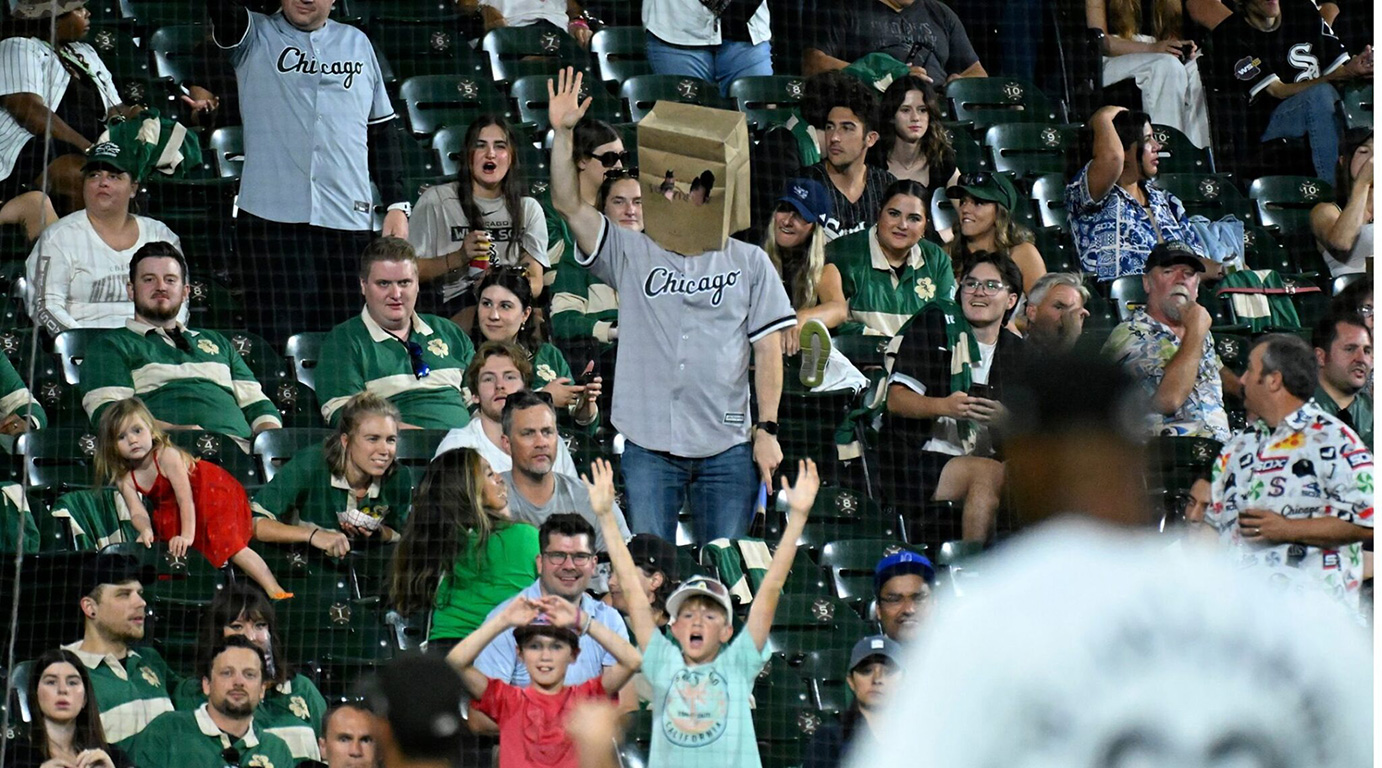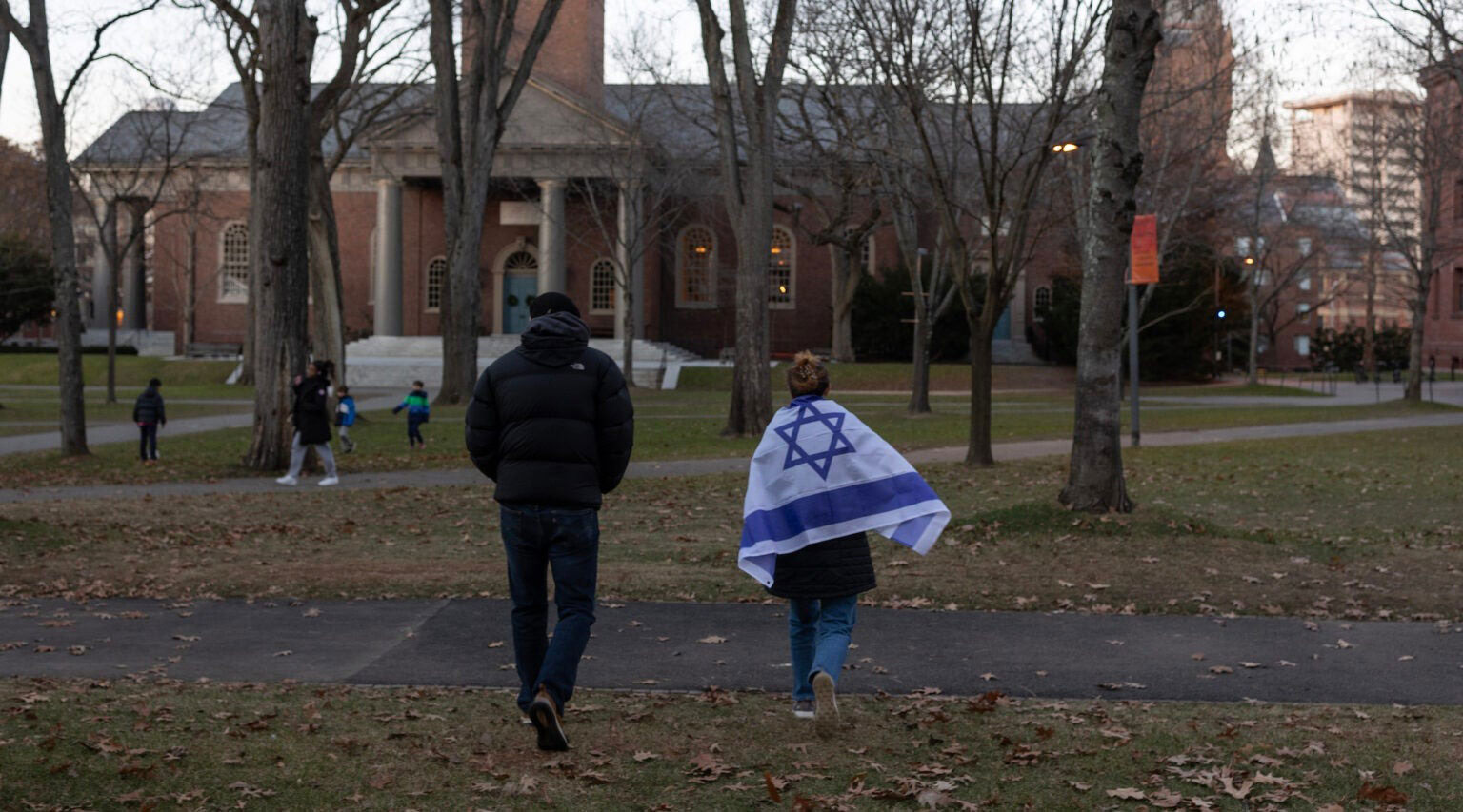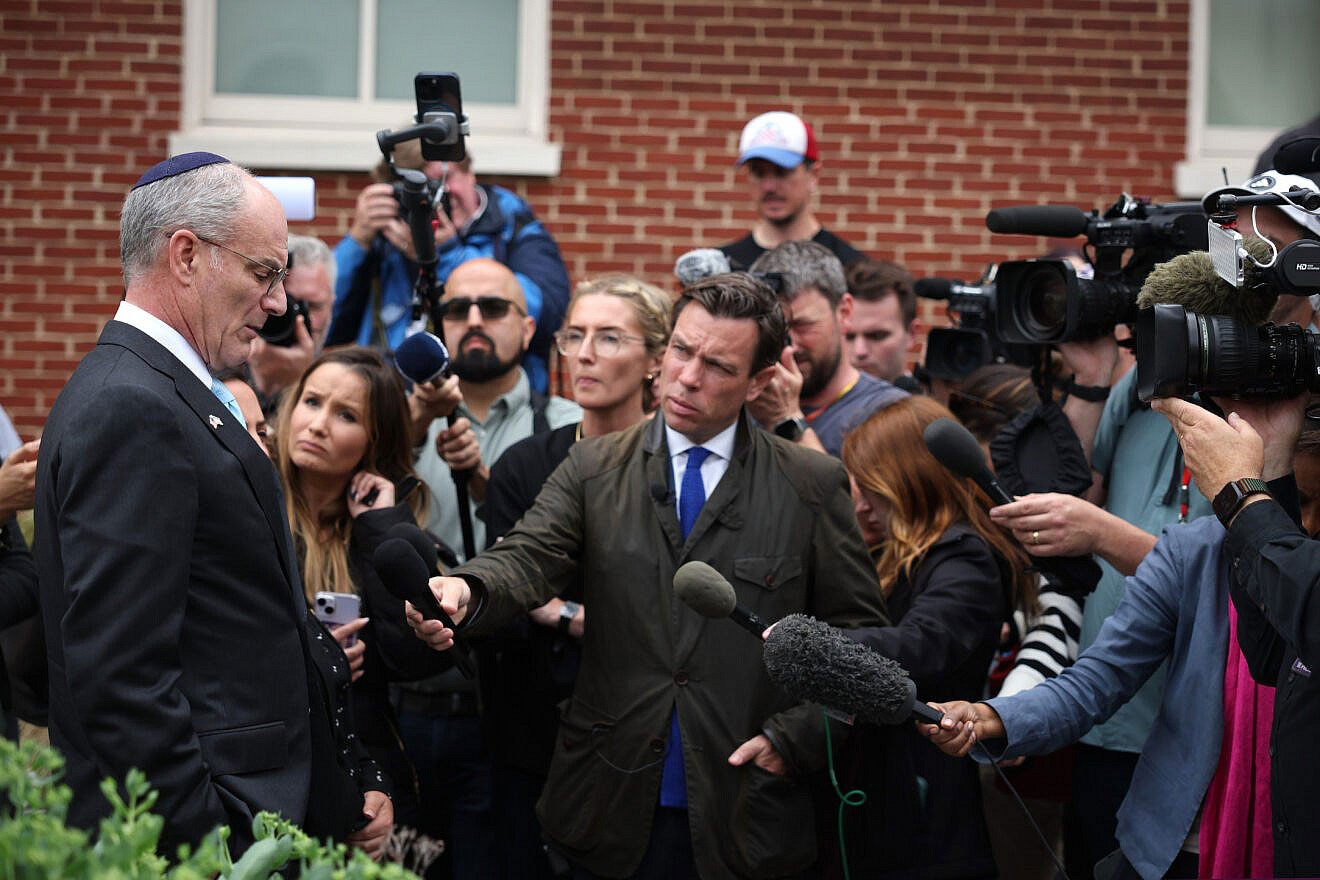Courtesy of JTA. Nuccio DiNuzzo/Getty Images
A fan wears a paper bag over his head during a game between the Chicago White Sox and the Oakland Athletics at Guaranteed Rate Field, Sept. 14, 2024, in Chicago
(JTA) — For as long as Rabbi Jeremy Fine has been alive, he’s been a fan of the Chicago White Sox. This Opening Day, he hoped that his team would provide a welcome diversion from what has been an excruciating year.
Alas, this was not the season.
“It was obviously a very tough year for the Jewish people,” said Fine, who leads the Conservative Congregation B’nai Tikvah in Deerfield, Illinois. “Having a great baseball season, or something to look forward to, would have been really nice. A great distraction from torment.”
Instead, the Sox have only tormented their fans more. On Sunday, Chicago’s South Side team lost its 120th game, tying the 1962 New York Mets’ modern record for losses in a single season. And there are still six games to go — all but ensuring that the White Sox will set a new record for baseball futility.
For Fine and his fellow Jewish White Sox fans, the experience of watching their beloved team notch a miserable record feels, well, culturally appropriate.
“Being a White Sox fan, it requires, first of all, devotion to the game, to the game of baseball, which I have,” said Edward Hamburg, 73, who moved to Chicago for graduate school 48 years ago and has been a White Sox fan ever since. “It is a test of loyalty that Jews are very comfortable with.”
One silver lining for Jewish Sox fans this season has been the two Jewish players who at various points played for the team. Veteran outfielder Kevin Pillar began the season in Chicago, though he only played in 17 games before the team released him and he joined the Los Angeles Angels. Pitcher Jared Shuster was traded to the Sox from Atlanta before the season and has appeared in 37 games, primarily out of the bullpen.
Fine said watching Pillar and Shuster was “the only thing I was excited about” heading into the season. Jason Loeb — who has gotten sympathy from strangers for his White Sox vanity license plate — called it a “point of pride” to root for Jewish players. And Hamburg lauded the wider slate of Jewish players in MLB today.
Each of the Jewish White Sox fans interviewed for this article echoed a similar sentiment — that the team’s failures directly stem from its ownership and front office. That’s made especially painful because the team is owned by Jerry Reinsdorf, an 88-year-old Jewish billionaire who also owns the NBA’s Chicago Bulls.
Reinsdorf wasn’t always persona non grata among Sox fans. He owned the Bulls during their championship runs in the 1990s, and after the White Sox won the 2005 World Series, Sox fan Henry Bernstein said Reinsdorf was “like everyone’s Jewish grandpa.” But with the Sox on the brink of infamy, their embattled owner has lost his fans’ goodwill.
Even a fan of the Sox’s crosstown arch-rivals, the Cubs, agrees that Reinsdorf is standing in the way of his own team’s success.
“Jerry Reinsdorf, what a shonda,” said Rabbi Tamar Manasseh, a Cubs fan who lives on the South Side, using the Yiddish term for disgrace. “A shonda, what he has done to the White Sox. I’m not even a fan, and I am mortified and I’m saddened. My heart breaks for Sox fans.”
Fans of the Sox, Jewish and otherwise, also appreciate the Cubs — because they all love to hate them. Rabbi David Minkus, whose Congregation Rodfei Zedek is less than five miles from the White Sox’s Guaranteed Rate Field, said his father taught his family “to be more haters of the Cubs than White Sox fans, which I still adhere to.”
Minkus, 39, who will be in attendance for one of the Sox’s final games this week, said he followed the team much more closely as a child than he does now.
Fine, the rabbi in Deerfield, joked that being a White Sox fan was written into his ketubah, or Jewish marriage contract. But now he’s considering switching his loyalty to the Milwaukee Brewers next season, in part because he would still be able to root against the Cubs, Milwaukee’s division rival.





